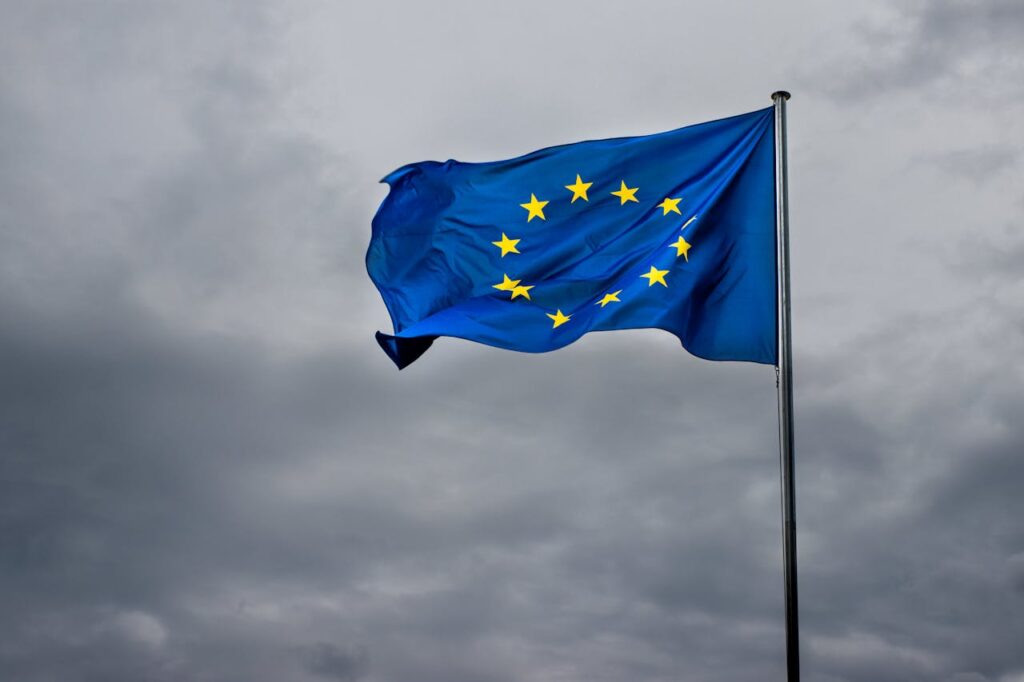European Union Plan Lets Children Choose Their Gender Without Medical Evaluation or Age Restriction

Imagine a world where a child could rewrite their identity with the stroke of a pen, no doctor, no counselor, no waiting period. A world where freedom is defined not by age or authority, but by pure self-declaration. Would that be a sign of progress or a step into uncertainty?

Across Europe, that question is no longer theoretical. The European Union is proposing a new framework that could reshape the very meaning of gender and childhood. Before we rush to take sides, we must pause to ask ourselves: Are we ready for the kind of freedom we are creating?
A Law That Questions How We Define Freedom
Every generation faces a defining question that forces society to look in the mirror. For ours, one of those questions is this: What does it mean to be free? And more urgently, where does that freedom end when a child is involved?
The European Commission’s proposed LGBTIQ+ Equality Strategy 2026 to 2030 has sparked one of the most emotional debates in recent memory. The plan suggests that children could legally change their gender at any age, without medical checks or psychological assessments, relying solely on self-identification. It promises to “support the development of legal gender recognition procedures based on self-determination that are free from age restrictions.”

To its supporters, this proposal represents progress and personal freedom. To critics, it feels like a leap into dangerous territory. Somewhere between these two views lies the heart of the issue: our shared responsibility to both protect and empower the next generation.
The EU’s Vision: Freedom Without Barriers
The European Commission’s proposal focuses on simplifying the process of legal gender recognition across Europe. It seeks to remove inconsistencies among member states, some of which require medical proof or psychological evaluation, while others allow individuals to self-identify with minimal procedure. Brussels frames this as an issue of equality and human rights, aiming for a uniform approach that respects personal autonomy.
The strategy centers on legal acknowledgment rather than medical transition, emphasizing that changing gender markers on identification documents should depend on personal declaration rather than clinical approval. According to The Telegraph, the Commission also plans to encourage the exchange of best practices among member states, hoping to guide them toward policies that reduce discrimination while upholding self-determination.

The most debated point is the absence of an age limit. Supporters argue this protects young people’s right to self-expression, while critics warn it could erode safeguards meant to protect minors. By promoting legal consistency, the EU says it seeks to strengthen equality across borders, though whether that goal can coexist with differing national values remains uncertain.
Critics Warn of Unintended Consequences
Opponents of the proposal see it as a shift with serious implications that extend beyond paperwork. Their main concern is the potential impact on children who might not yet have the maturity to make decisions about legal identity that could follow them for life. Maya Forstater, chief executive of Sex Matters, called the plan “chilling.” She warned that the strategy promotes legal gender self-identification for minors of any age while removing the option for what she called “talking therapy” meant to help children explore their feelings before making permanent changes.
She told the publication, “This chilling EU-wide strategy pushes legal gender self-identification for children of any age and a ban on talking therapy for vulnerable children.” Forstater added that this direction could have “devastating consequences for women and girls, vulnerable children, and gay and lesbian people.”
Faika El-Nagashi, founder of the Athena Forum, voiced similar concerns about the lack of democratic debate behind the initiative. She argued that embedding gender-identity ideology across multiple EU policy areas, including those related to women’s rights, could dilute long-established legal protections. In her words, “It is outrageous that the commission blatantly centers a push for self-ID laws without age restrictions across Europe … and seeks to embed gender-identity ideology across virtually every policy area, including, crucially, women’s rights.”

Critics like Forstater and El-Nagashi emphasize that their objection is not opposition to transgender rights but resistance to policy being shaped without sufficient discussion, evidence, or transparency. They argue that complex issues surrounding identity and safeguarding deserve open democratic debate rather than centralized directives from Brussels. This tension, they suggest, is not just about gender but about how power and process shape the laws that govern personal freedom.
The Psychology of Choice and the Complexity of Childhood
Let’s pause the political debate for a moment. Beneath the noise, there’s a deeper question: what does it mean for a child to make a decision this profound? Psychologists remind us that identity formation is a fluid, evolving process. Childhood and adolescence are seasons of exploration, confusion, and discovery. In most areas of life, we guide young people through structure and gradual freedom, we don’t throw them into the deep end.
Supporters of self-ID laws argue that waiting for adulthood can cause harm to transgender youth, who may already suffer from dysphoria, social stigma, and depression. They believe the right to self-determination can be life-saving. But others counter that premature legal recognition could cement identities before they fully form, potentially closing the door on exploration.
This isn’t a question with easy answers. But perhaps, as adults, we owe it to children to protect their right to change their minds as much as their right to choose.
The Paradox of Freedom and Responsibility
Freedom is one of humanity’s most sacred values. Yet freedom without reflection can easily become recklessness. The paradox of our time is that we often confuse freedom with the absence of any boundaries. True freedom, however, is not about doing whatever we wish but about cultivating the wisdom to make choices that honor both ourselves and others.
When institutions legislate freedom, they carry the weight of enormous responsibility. Remove too many safeguards and people may be harmed by choices made without maturity or context. Impose too many and freedom risks becoming little more than permission granted by authority. The European Union’s proposal attempts to walk this fine line, seeking to protect identity rights while maintaining social balance. For many observers, though, the question remains whether the framework achieves harmony or unintentionally tilts toward excess.
Beneath the policy arguments and ideological divisions lies a shared truth: dignity and safety must coexist. Every individual deserves the chance to live authentically, and every child deserves protection while discovering who they are. The real challenge is not in choosing between freedom and responsibility but in understanding how they sustain each other.
Beyond Borders: What This Means for the Future
The implications of the EU’s strategy reach far beyond its borders. If approved, it could influence how other nations approach the balance between personal rights and state regulation. The policy discussion unfolding in Europe reflects a wider global tension between progressive inclusion and traditional definitions of gender and childhood. How the EU handles this issue may set a precedent for other regions weighing similar reforms.

For the United Kingdom, this debate carries particular weight. Since leaving the EU, the UK has maintained its own process for legal gender recognition, requiring individuals to be 18 to change their gender on official documents. While some British commentators see this as validation of independence from EU mandates, others fear it could lead to stagnation rather than careful evolution. The contrasting approaches show how deeply cultural values shape the meaning of equality.
As Europe moves closer to finalizing the 2026 to 2030 strategy, observers both inside and outside the continent are watching closely. The choices made in Brussels will not only influence policy but also the broader conversation about identity, autonomy, and the moral responsibilities societies hold toward their youngest citizens.
What Kind of World Are We Building?
Every law is a mirror. It reflects what we value and what we fear. Whether we see this EU proposal as liberation or overreach, it forces us to ask who we are becoming as a society and as individuals.
Do we believe in the wisdom of self-determination, even for the youngest among us? Or do we recognize that freedom without preparation can sometimes feel like abandonment? Perhaps the real challenge lies in finding balance, in learning to combine compassion with accountability.

Each generation inherits not just laws but philosophies about what it means to be human. The choices made today will shape how children tomorrow understand identity, community, and care. Our task is to ensure that progress remains rooted in empathy and understanding rather than haste or fear.
We can honor diversity while still protecting vulnerability. We can build societies that listen, that debate, that evolve with care. Because progress is not about running faster, it is about walking together, ensuring no one, especially no child, gets lost along the way.
Featured Image from Pexels
Loading...

